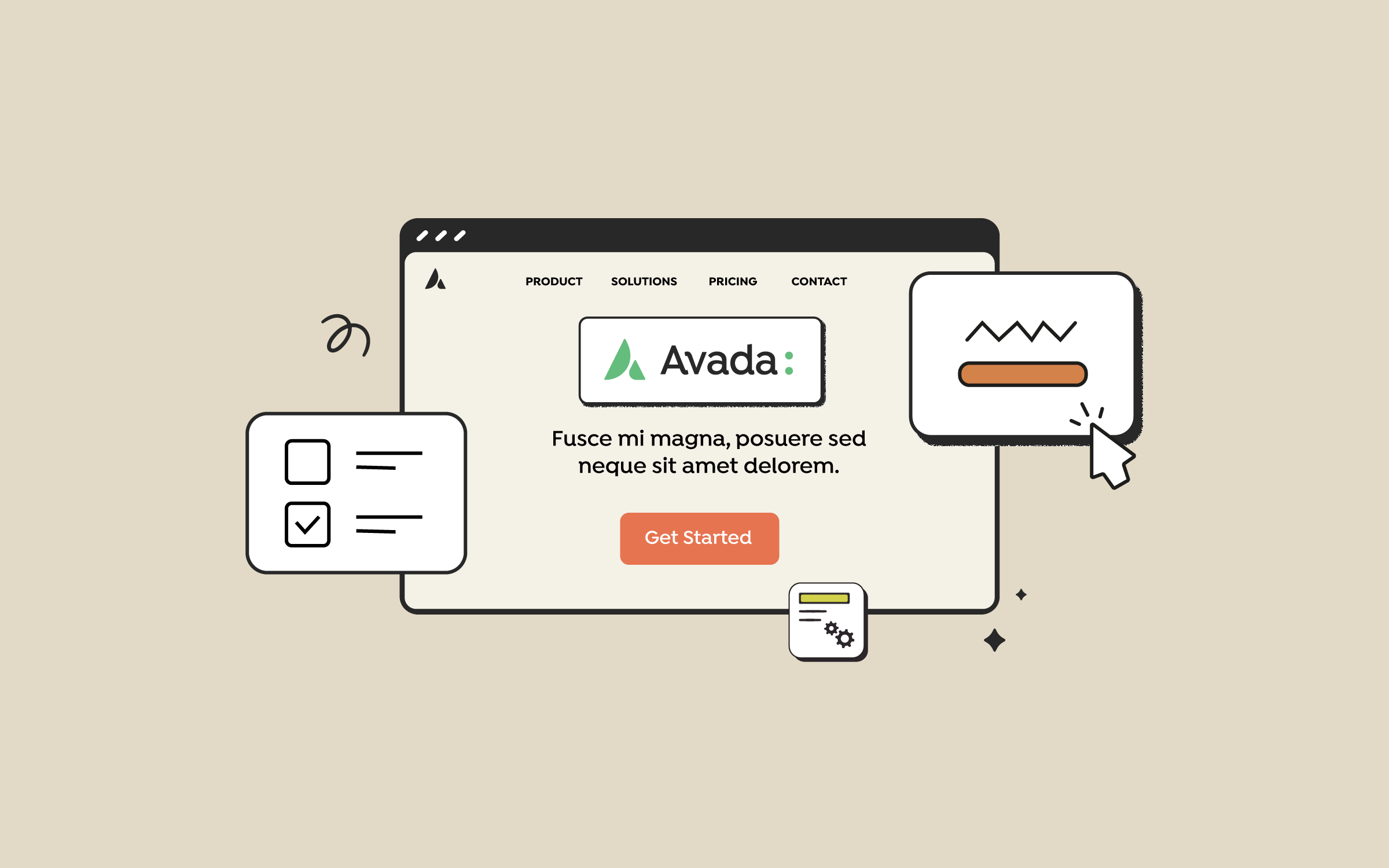Share
WordPress is the most popular content management system (CMS) used by millions of websites worldwide and, as of 2023, powers more than 43,2% of all websites. As is needed for any website, web hosting is required to be accessible to the broader public. Therefore, choosing the right hosting option ensures your site’s performance, security, uptime, and scalability suitably match your requirements. The main difference between regular and managed hosting is the extra features your chosen plan provides, which can vary significantly.
Managed WordPress hosting is where the hosting provider takes care of the technical aspects of running and maintaining a website, allowing the website owner to focus on their content and online growth. This service aims to simplify the hosting experience by handling tasks such as server management, software updates, security, server-level performance optimizations, and backups.
In this beginner’s guide, we will introduce you to various managed hosting options available for WordPress and Avada, their benefits, and some popular providers.
Overview
4 Main Types of WordPress Hosting Platforms
As a website owner, it’s essential to understand the distinctions between different web hosting solutions; This will allow you to make an informed decision and select the most suitable hosting plan, ensuring a reliable, secure, and high-performing experience for your website and visitors. As with WordPress, Avada runs on any web hosting package, even standard shared hosting packages provided by GoDaddy and others.
This article will explore the four main types of WordPress hosting platforms for beginners to consider.
Shared Hosting
This is the most affordable and beginner-friendly option, where multiple websites share the same server resources, such as CPU, RAM, storage, and bandwidth. This hosting option is popular among small businesses, bloggers, and individuals with low to moderate-traffic websites, as it offers an affordable and easy-to-manage solution for hosting a website.
While shared hosting is affordable and user-friendly, considering its limitations, particularly regarding resources and control, is essential. As your website grows and traffic increases, consider upgrading to a more scalable hosting solution, such as a virtual private server (VPS) or dedicated hosting.
Virtual Private Server (VPS) Hosting
Virtual Private Server (VPS) hosting is a web hosting service that utilizes virtualization technology to divide a physical server into multiple isolated virtual servers. Each virtual server operates independently, with its own operating system, dedicated resources (such as CPU, RAM, and storage), and full root access. VPS hosting balances shared and dedicated hosting, providing more control, scalability, and resources than shared hosting at a lower cost than dedicated hosting.
VPS hosting is ideal for website owners who have outgrown shared hosting and require more resources, control, and scalability. It’s suitable for medium-sized e-commerce and websites with fluctuating traffic. However, dedicated hosting may be more convenient for websites with high traffic or specific resource requirements.
Dedicated Hosting
Dedicated hosting provides a physical server for your website, offering enhanced performance, control, and security. Unlike shared or VPS hosting, where resources are split among multiple users, dedicated hosting gives the client complete control over the server and its resources, including CPU, RAM, storage, and bandwidth. This option is ideal for large, high-traffic websites but can be expensive and requires more technical knowledge to manage.
It must be noted that dedicated hosting comes with a higher cost and requires more technical knowledge than shared or VPS hosting options. If you’re considering dedicated hosting, ensure you have the expertise or resources to manage the server. Alternatively, consider opting for a managed dedicated hosting plan, where the hosting provider assists with server management tasks.
Managed Hosting
Managed hosting is a web hosting service where the provider takes care of the technical aspects of running and maintaining a website or server on behalf of the client. This service simplifies the hosting experience by handling all aspects of server management, software updates, security, performance optimizations, and backups, allowing the website owner to focus on their content and online presence.
This hosting option is typically more expensive than unmanaged or self-managed hosting options (shared, VPS, and so on). However, it offers numerous benefits, including improved performance, security, and expert support, making it an attractive option for website owners who prefer a hands-off approach to website management or do not have the time to manage the technical aspects.
Leading WordPress Hosting Providers
There are many other web hosting companies available on the market (too numerous to mention in this article) to choose from. Therefore, this article only examines four top leading contenders for affordable managed WordPress hosting, each offering a range of features and benefits to consider.
With over a decade of support history for Avada and many different hosting platforms, it is our experience that Avada does operate perfectly, even on the lowest level shared hosting packages available by hosting providers, without any issues or resource limitations.
SiteGround
SiteGround is a top choice for Avada owners and businesses seeking reliable, secure, high-performance hosting solutions. With a strong focus on customer satisfaction and ease of setup, SiteGround offers a wide range of hosting services, including shared, managed WordPress, cloud, and dedicated hosting, backed by cutting-edge technology and an expert support team. SiteGround Hosting is renowned for fast server speeds, robust security measures, and exceptional uptime.
Furthermore, we have partnered with SiteGround to provide a premium website building and hosting experience, including an easy 1-click Avada installation option.
* Hosting offer valid for existing Avada customers only; Avada purchase required. Terms and Conditions apply.
Key Facts:
WPEngine
WP Engine is a leading managed WordPress hosting provider that delivers best-in-class performance, security, and scalability for websites of all sizes. With a focus on the WordPress CMS, WP Engine offers specialized hosting solutions designed to optimize your website’s performance, ensuring lightning-fast loading times and exceptional reliability.
In addition, their expert support team, available 24/7, is well-versed in WordPress, providing invaluable insights and assistance when needed. Avada owners have made WP Engine a top choice for their hosting needs with a 20% discount when you sign up.
Key Facts:
Wordpress.com
WordPress.com is a comprehensive web hosting ecosystem tailored to the needs of individuals, businesses, and organizations looking for a holistic WordPress experience. As the official hosting service by the creators of the WordPress CMS, they offer an all-in-one solution that simplifies creating and maintaining a professional website.
There are various hosting plans to choose from, providing top-notch performance, security, and scalability. However, it must be noted that to upload a custom theme like Avada to this hosting service, either the Business or Commerce plan is required.
* A Business or Commerce plan is required for custom themes.
Key Facts:
Dreamhost
Known for their commitment to customer satisfaction, DreamHost provides reliable, secure, and high-performance hosting services, including shared, managed WordPress, VPS, dedicated, and cloud hosting. With a seamless hosting experience through the easy-to-use control panel, extensive customer support, and affordable pricing plans.
Key Facts:
In Summary
Understanding the basics of WordPress hosting is crucial when deciding which hosting provider will suit your online business today and for the foreseeable future.
Avada is a powerful and versatile Website Builder and the perfect match for any hosting provider mentioned in this article, whether SiteGround, WP Engine, WordPress.com, Bluehost, DreamHost, or any other mainstream hosting provider.
We have partnered with and recommend SiteGround as a premium and reliable hosting provider. If you are an existing Avada customer and want to change your hosting provider to SiteGround, check out the explainer video on migrating quickly and seamlessly.
And, if you are new to Avada and want to build a new website, you can easily set up your first WordPress website with Avada installed and activated with one click. Embrace the limitless possibilities of Avada and create the website of your dreams, backed by the unparalleled support and infrastructure offered by these industry-leading web hosting companies.
























































































































